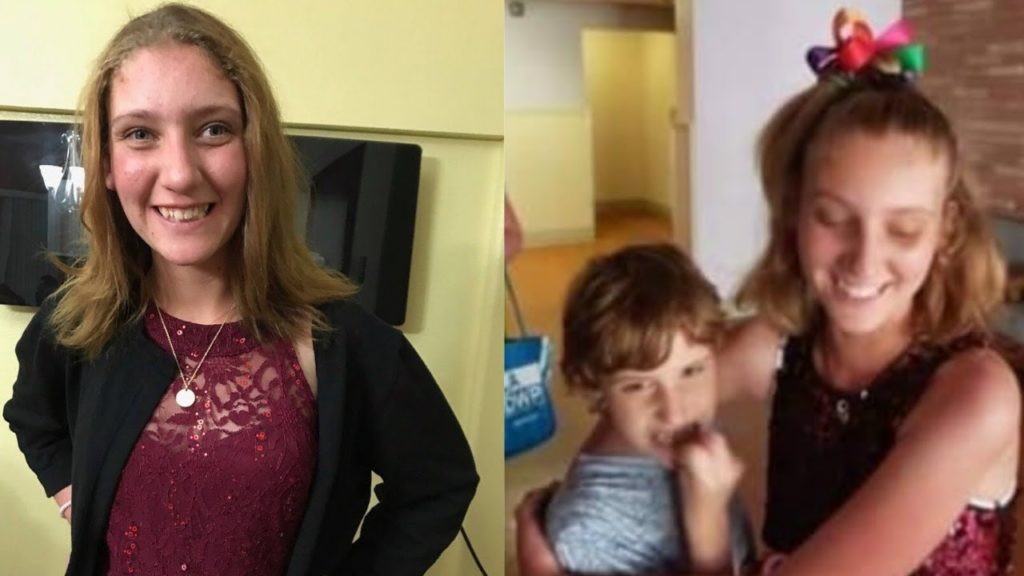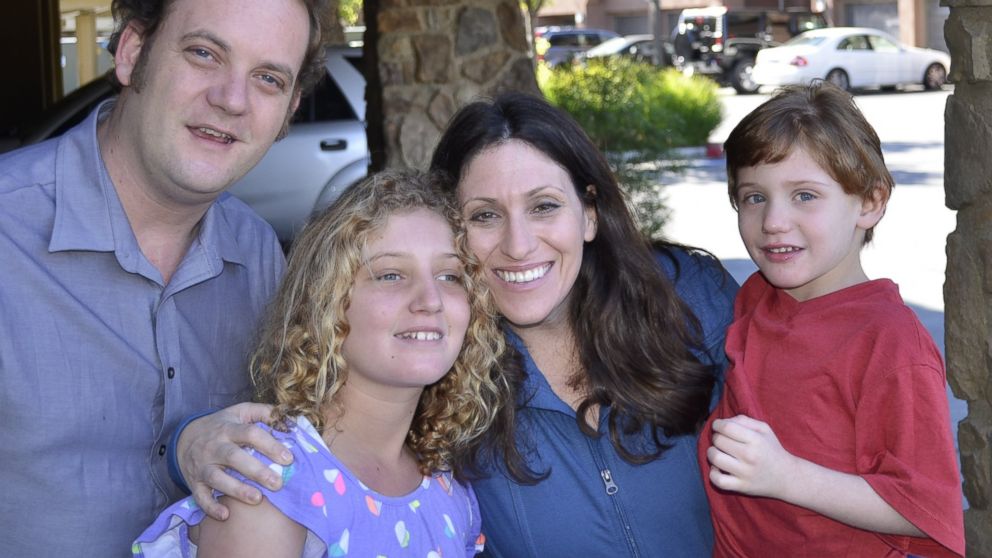Jani Schofield: What's The Truth? Latest On The Case & Her Journey
Did you ever wonder about the hidden realities behind the headlines, the stories that linger in the shadows long after the cameras have turned off? The case of Jani Schofield, a child diagnosed with a severe form of schizophrenia, offers a chilling glimpse into the complex intersection of mental health, family dynamics, and the pervasive influence of the internet.
Jani and her brother, Bodhi, became known to the world through their mother, Susan, who shared videos of their lives online. These videos, initially intended to raise awareness and garner support, ultimately exposed the Schofield children to a level of scrutiny and controversy that would define their childhoods. The narrative, as presented by Susan, painted a picture of two young children battling debilitating mental illnesses. However, this narrative, and the very diagnoses themselves, would later come under intense scrutiny. In 2019, the children were removed from their parents' custody, and a subsequent diagnosis of autism was given, significantly altering the understanding of their conditions.
| Attribute | Details |
|---|---|
| Full Name | Jani Schofield |
| Birth Year | 2002 |
| Place of Birth | California, USA |
| Siblings | Bodhi Schofield |
| Initial Diagnoses | Childhood Schizophrenia (later disputed), Autism |
| Notable Appearances | Discovery Fit & Health's "Born Schizophrenic", Oprah, Dr. Phil |
| Key Events | Shared videos of life online, Custody removal in 2019, New Year's Eve 2022 performance |
| Current Status | Details are limited, with conflicting reports |
| Associated Individuals | Susan Schofield (Mother), Michael Schofield (Father), Cory Cabana (Stepfather), Dr. Laleh Bahar Posey |
| Controversies | Allegations of Medical Child Abuse (Fabricated or Induced Illness - FII), Disputed Diagnoses, Parental Influence |
| Reference | Google Search - Jani Schofield |
Jani's story is not just about a medical diagnosis; it's a complex tapestry woven with threads of familial strife, media attention, and the vulnerabilities of childhood. Jani's case emerged as a subject of debate, with allegations of medical child abuse, specifically the rare form known as Fabricated or Induced Illness (FII), also known as Munchausen syndrome by proxy. This casts a dark shadow on the initial narratives presented to the public.
- Hdhub4u Watch Download Movies What You Need To Know
- Telugu Movies Movierulz Updates Latest News Streaming Info
The genesis of Jani's public profile can be traced back to her mother's decision to share her experiences online. Susan, along with her husband Michael, documented their journey of hope and resilience. However, the online platform amplified the details of Jani's condition, exposing the nuances of her life to the public. The video content, aimed at raising awareness and seeking understanding, sparked a dedicated following. The constant fear that both Jani and Bodhi might injure themselves or each other was ever-present. The use of the internet to document the journey was at its peak.
Jani, precociously intelligent from a young age, spoke in grammatically correct sentences by the age of one and a half years and knew the alphabet by thirteen months. At the age of six, Jani was diagnosed with schizophrenia, an event that catapulted her into the spotlight. The youngest person diagnosed with schizophrenia. The symptoms of the disease manifested in various ways, including hallucinations, imaginary friends, and a world she called "Calalini." These friends, sometimes friendly and at other times malevolent, issued commands, leading Jani to scream at strangers, consider jumping out of buildings, and attack her baby brother. These details are well documented, and they offer a clear glimpse of her struggles.
The details of Janis case were presented on television shows, including "Oprah", "Dr. Phil," and Discovery Fit & Health's "Born Schizophrenic."
Janis journey into the public sphere also brought with it a storm of criticism. The parents, Susan and Michael, moved into separate one-bedroom apartments in the same complex to stop Bodhi from being removed. Bodhi had to reach a certain age as per DCFS in order for him to live in the same apartment as Jani. It is crucial to investigate claims and understand the facts related to their well-being.
A live interview featuring Susan, Cory Cabana, and Jani Schofield provided further insights into their lives and struggles. The show that focused on their story received a lot of attention. The media attention, however, also had its drawbacks.
Jani, who turned 18, chose to leave the system and live with her mother. The decision, while presented as a personal choice, triggered a fresh wave of speculation and concern. This event raises crucial questions about the long-term impact of such intense media scrutiny on a young person struggling with mental health challenges.
Janis case has become a symbol of the difficult issues surrounding childhood mental illness, parental advocacy, and the responsible use of media. Janis story serves as a reminder of the need for empathy, accurate information, and responsible storytelling.
The case also raises questions about the responsibilities of parents in managing their children's health challenges, particularly when shared with the public. It's important to weigh the desire to share against the potential implications of doing so. There has been an increase in discussions about the abuse of the Schofield children. The case of the Schofield children, however, reveals the long-lasting impact of media on children with mental illness.
The narrative is further complicated by the involvement of various professionals and the differing perspectives they bring to the case. Dr. Laleh Bahar Posey, who dedicated her life to pediatrics, was deposed for the trial and passed away earlier this year. Her contributions to understanding the case, even after her passing, are valuable. However, the fact that she faced hate comments shows how charged the conversations around the case can be.
As of the latest information, the location and conditions of Jani and Bodhi remain unclear. It is essential to approach the case with empathy, recognizing the delicate nature of mental health issues and the impact of public scrutiny on those affected. The case offers a cautionary tale about the delicate balance between raising awareness, protecting privacy, and the ethical implications of sharing vulnerable personal narratives.
Many are left wondering about the current state of the two siblings. The lack of consistent updates and the divergent accounts highlight the complexity of the case and the challenges in providing accurate information. It is essential to approach the case with empathy, acknowledging the sensitive nature of mental health concerns and the consequences of public exposure.
The story of Jani Schofield is more than just a clinical diagnosis; it is a human story marked by the struggle of mental health, the complicated nature of families, and the pervasive influence of media in the modern era. Jani's story is a reminder of the need for empathy, accurate information, and responsible storytelling.
Article Recommendations



Detail Author:
- Name : Mary Wiza
- Username : kuhn.olen
- Email : ashly.larkin@yahoo.com
- Birthdate : 2000-06-05
- Address : 2948 Sipes Square Waterstown, NV 50000-2708
- Phone : 360.365.3608
- Company : Brekke, Huels and Cassin
- Job : Poet OR Lyricist
- Bio : Qui delectus rerum voluptas inventore ad. Excepturi ullam quis quasi officia odit molestias reprehenderit. Dolores neque laborum itaque consequatur ex. Quia ab aut nihil eum optio molestiae velit.
Socials
tiktok:
- url : https://tiktok.com/@roma_rowe
- username : roma_rowe
- bio : Sit nisi aperiam et voluptas error ut ad. Enim vero molestiae repudiandae quis.
- followers : 6181
- following : 1479
instagram:
- url : https://instagram.com/romarowe
- username : romarowe
- bio : Rem velit porro qui sint corporis. Tempore quia accusantium reprehenderit aut dolor error qui iure.
- followers : 4041
- following : 2935
twitter:
- url : https://twitter.com/roma_rowe
- username : roma_rowe
- bio : Molestiae ea quia at et deserunt cupiditate modi. Nam nam minima facilis dolorem. Sed pariatur consequuntur id.
- followers : 6731
- following : 2191
facebook:
- url : https://facebook.com/roma_rowe
- username : roma_rowe
- bio : Tempore aut rerum quibusdam inventore fugiat.
- followers : 5315
- following : 2515
linkedin:
- url : https://linkedin.com/in/rowe1990
- username : rowe1990
- bio : Voluptatem tempora similique id et dolor.
- followers : 1109
- following : 1768